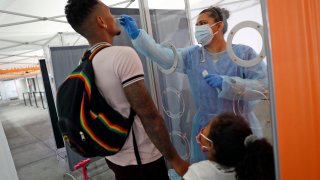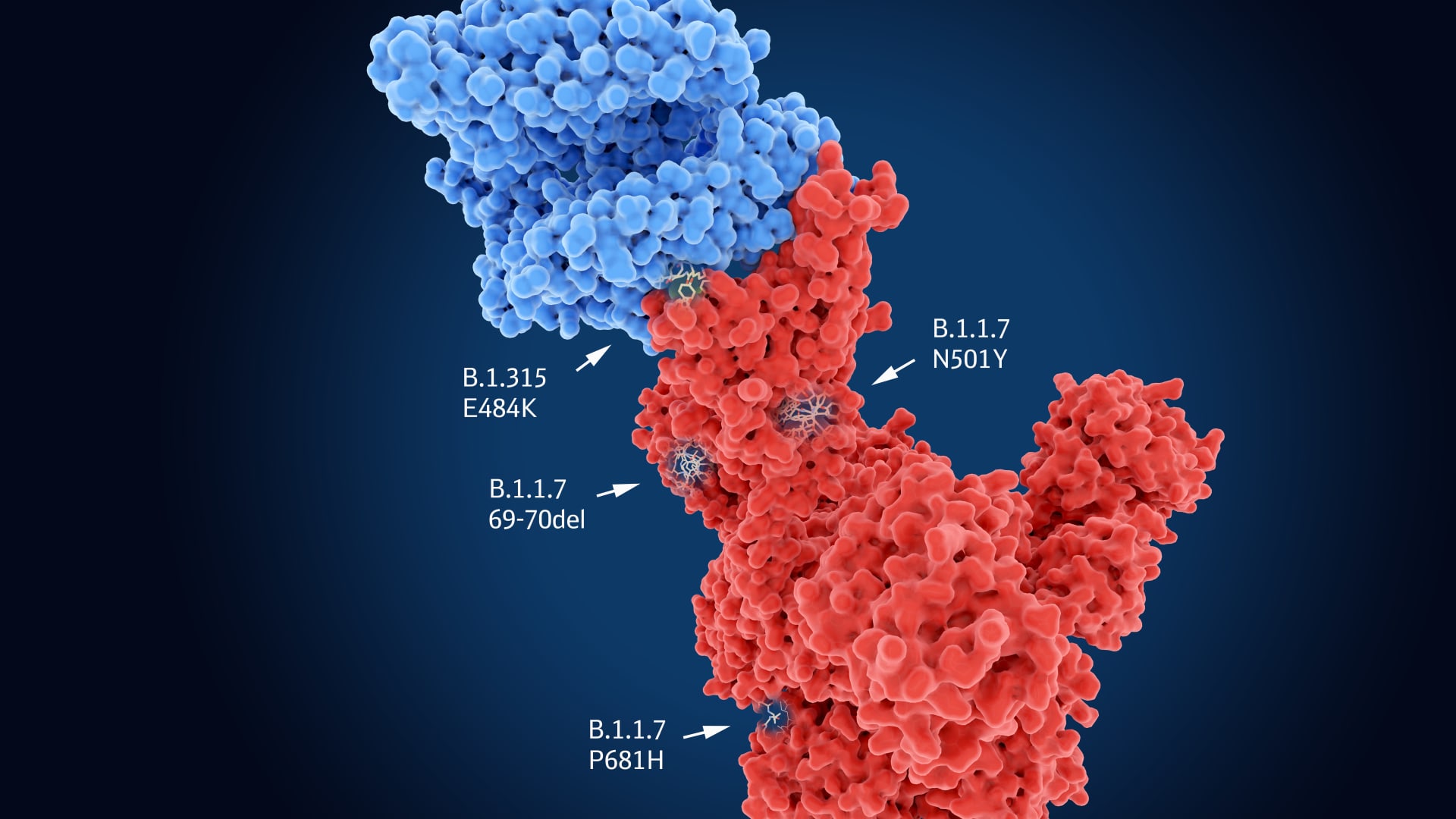
- The variant, known as B.1.1.7, is "now the most common lineage circulating in the United States." CDC Director Dr. Rachelle Walensky said.
- "Testing remains an important strategy to rapidly identify and isolate infectious individuals, including those with variants of concern," Walensky said.
- She added the U.S. must accelerate its vaccination efforts.

The highly contagious variant first identified in the U.K. is now the most common Covid strain circulating in the U.S., the head of the Centers for Disease Control and Prevention said Wednesday.
The variant, known as B.1.1.7, is "now the most common lineage circulating in the United States." CDC Director Dr. Rachelle Walensky said during a White House briefing. "Testing remains an important strategy to rapidly identify and isolate infectious individuals, including those with variants of concern," Walensky said.
The U.K. identified B.1.1.7, which appears to be more deadly and spread more easily than other strains, last fall. It has since spread to other parts of the globe, including the United States, which has identified 16,275 cases across 52 jurisdictions as of Tuesday, according to the CDC.
Get Tri-state area news delivered to your inbox. Sign up for NBC New York's News Headlines newsletter.
Florida has the most confirmed cases of the new variant, according to a map of the CDC data, followed closely by Michigan, Wisconsin, California and Colorado. Public health officials say they are working as quickly as possible to identify more cases.
Money Report
Last week, Walensky said the B.1.1.7 strain was starting to become the predominant strain in many regions of the U.S., accounting for 26% of Covid-19 cases circulating across the nation. She urged the public to continue pandemic safety measures, such as washing hands, wearing masks and practicing social distancing.
"This is a critical moment in our fight against the pandemic," Walensky said last week "We can't afford to let our guard down."
Coronavirus case counts remain far off their peak January levels, but slightly above the most recent low point in late March. The seven-day average of daily new cases is 64,700, according to data compiled by Johns Hopkins University, a level similar to what the country saw during the summer surge.
Even as the pace of vaccinations picks up, highly contagious variants are rapidly spreading and could potentially stall the nation's recovery from the pandemic.
Walensky said Wednesday that the U.S. must accelerate its vaccination efforts, which were averaging about 3.1 million shots per day as of Monday. On Tuesday, President Joe Biden announced that states should open Covid-19 vaccine appointments to all U.S. adults by April 19, moving up his original deadline by nearly two weeks.
"We must continue to vaccinate as many Americans as we can each day," Walensky said, adding it will cause new cases and deaths to decline.
– CNBC's Nate Rattner contributed to this report.






